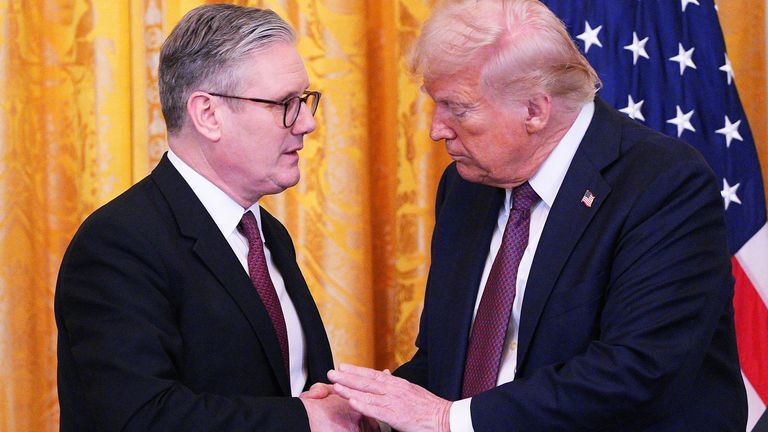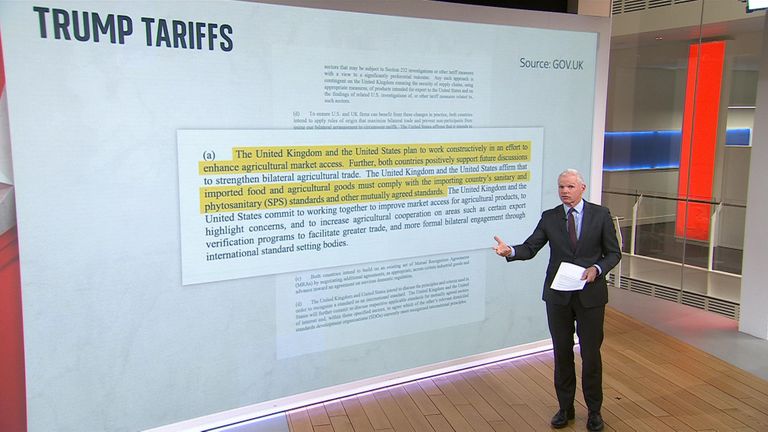The 'tricky balancing act' facing Starmer over US trade deal - and the real challenge to come

If you want a very visual representation of the challenges of transatlantic diplomacy in 2025, look no further than Oslo City Hall.
Its marbled mural-clad walls played home to a European military summit on Friday.
In December – as it does every year – it will host the Nobel Peace Prize ceremony. It's an award Donald Trump has said he deserves to win.
But while the leaders gathering in the Norwegian capital may not say it publicly, they all have a very different perspective to the US president on how to win the peace – particularly when it comes to Ukraine.
So far, Sir Keir Starmer has managed to paper over these foreign policy gaps between the US and Europe with warm words and niceties.
But squaring the two sides off on trade may be more difficult.
The US-UK deal announced on Thursday contained no obvious red flags that could scupper deeper trade links with the EU.
Please use Chrome browser for a more accessible video player
 2:42
2:42 However, that's in part because it was more a reaction and remedy to Mr Trump's tariff regime than a proactive attempt to meld the two countries together.
Laced with party-political venom, yes, but the Tory leader Kemi Badenoch is getting at something when she says this agreement is "not even a trade deal, it's a tariff deal and we are in a worse position now than we were six weeks ago".
There may be more to come though.
Please use Chrome browser for a more accessible video player
 2:45
2:45 The government will talk up the possible benefits, but there are risks too.
Take the Digital Services Tax – much hated by the Trump White House as an unfair levy on US tech firms.
Despite the apparent pitch-rolling from the government, that was left untouched this week.
But asked to rule out changes in the future, the prime minister was non-committal, simply saying the current deal "doesn't cover that".
Read more:Key details of UK-US trade dealNot the broad trade deal of Brexiteer dreams - analysis
For trade expert David Henig, the potential flashpoints in the transatlantic Venn diagram Downing Street is trying to draw around food standards, digital regulation and services.
"It is a tricky balancing act, at this stage it looks like the UK will go more with the EU on goods regulations, but perhaps a little bit more with the US on services regulations," he said.
For veterans of the post-2016 Brexit battles, this may all sound like Labour embracing the Boris Johnson-era mantra of "cakeism" – or trying to have it both ways.
👉 Click here to listen to Electoral Dysfunction on your podcast app 👈
It's ironic indeed, given Sir Keir is a politician who supported the Remain campaign and then called for a second referendum.
But what matters now is what works – not for Downing Street but for the swathes of voters who have abandoned Labour since they took office.
That's why the prime minister was once again trying to humanise this week's trade deals.
These are agreements, he said, that would be measured in the "many thousands of jobs" they would safeguard across the country.
That's the real challenge now, taking the work done in the marbled halls of the world's capitals and convincing people at home why it matters to them.
Sky News



